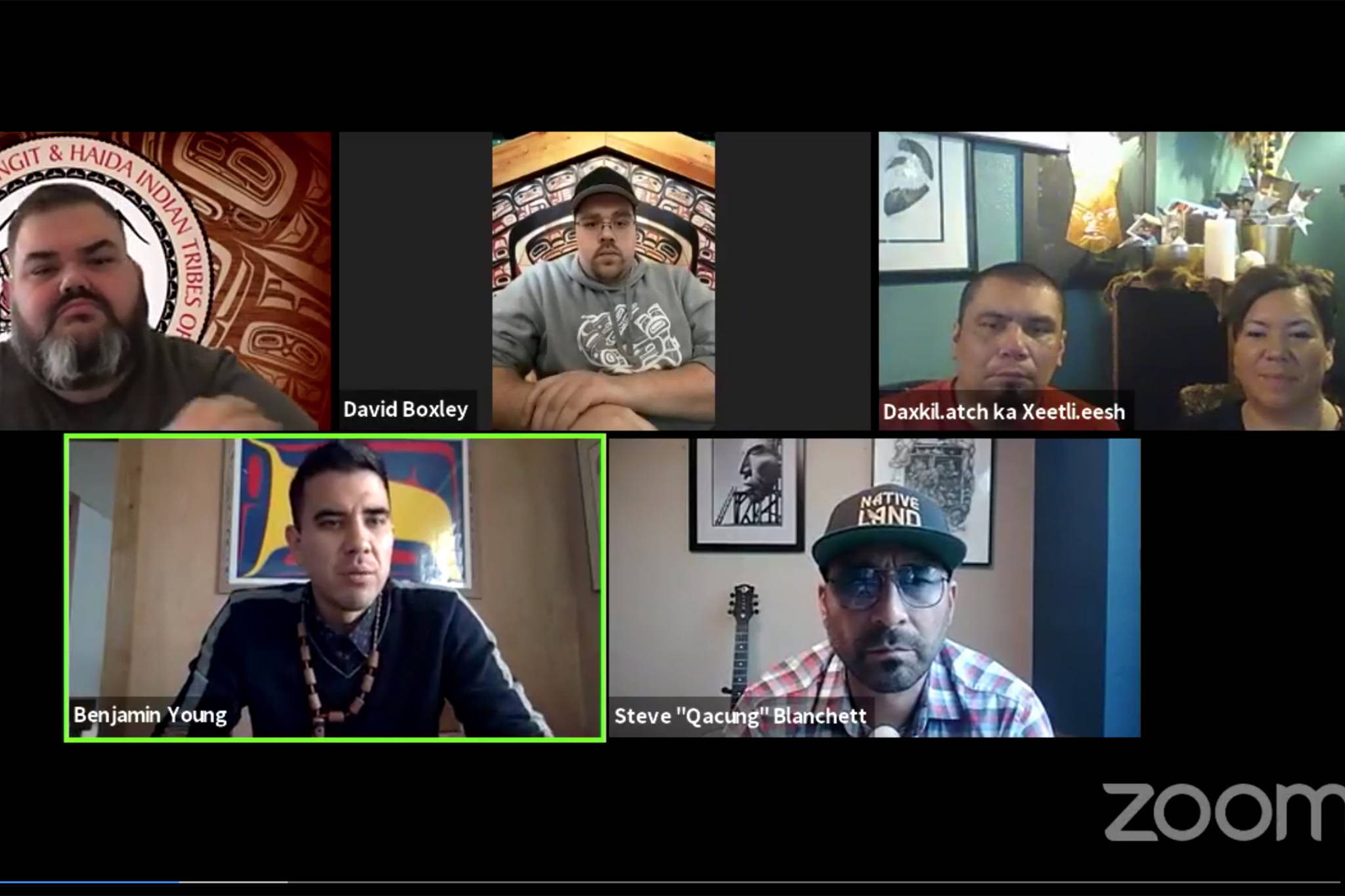Groups across Alaska celebrated Indigenous Peoples’ Day virtually with music, discussion and hopes for the future on Monday.
Indigenous Peoples Day replaced Columbus Day in Alaska in 2017 after a bill establishing the day received bipartisan support in the state House and Senate. It was signed into law by former Gov. Bill Walker and has now been celebrated on the second Monday in October for several years.
“Ourworldhasbeendiminishedbythenearlossofourlanguages,whichiswhywe’refightingsohardtobringthemback,”saidTsimshianartistDavidR.BoxleyduringalivestreamedcelebrationhostedbytheCentralCouncilofTlingitandHaidaIndianTribesofAlaska“We’refightinganuphillbattle.Inthisdayandage,it’ssomucheasiertospeakEnglish.Itmakesitallthemorecrucialthatwe’revictoriousinthiseffort.”
The loss of languages across many Alaska Native and Native American cultures came from government policies intended to westernize Indigenous people while divorcing them from their cultural roots.
“Our languages are such a special thing and so unique. There are only so many people in the world that can communicate in our way,” said Steve Qacung Blanchett, musician and another member of the panel. “To me that’s such a special thing to cherish, the uniqueness we all have and the beauty and the diversity of our language.”
With a resurgence in art in the style of Alaska Native tribes across Southeast Alaska and the whole state, the next step is language, said recently reelected Central Council of Tlingit and Haida Indian Tribes of Alaska President Richard Chalyee Éesh Peterson.
“When you go out in the day in the world, you have to be careful what words you use, because your clan is responsible for them,” Peterson said. “There’s a responsibility to using our words that’s lost in the fast pace of using English.”
Decolonization and activism
At an online event and virtual rally held by Native Movement, an Indigenous advocacy nonprofit based in the state, the environment, racism and justice were the main focus.
“Our fish are dying in their streams,” said Ruth Miller, Native Movement’s climate justice organizer and one of the emcees for the event. “Our caribou are being pushed off their birthing grounds by housing developments.”
The virtual rally, viewed by hundreds, featured music by Alaskan artists, including Portugal. The Man, Torin Jacobs, Marc Brown and Nenieezh Peter in between round tables and other educational blocks. Peter also spoke about legislature she had introduced with the Alaska Federation of Natives to form a task force to take action on climate justice for Alaska Natives.
“We’re still working with our tribal leaders and in contact with government officials to stay up to date on the task force we want to have happen,” said Peter. “We want to thank you all for being so supportive and kind. We need (the Alaska Federation of Natives) to do what they said they would.”
The lessons of the lifestyles of Indigenous peoples can be applied to our world now to protect the future of the state and the planet, Miller said.
“When we talk about climate justice, we’re talking about returning the harmony and reciprocity that were present before colonization,” Miller said. “The current state of affairs, the current state of our global economy is based on oppression, exploitation, and extraction.”
• Contact reporter Michael S. Lockett at (757) 621-1197 or mlockett@juneauempire.com.

